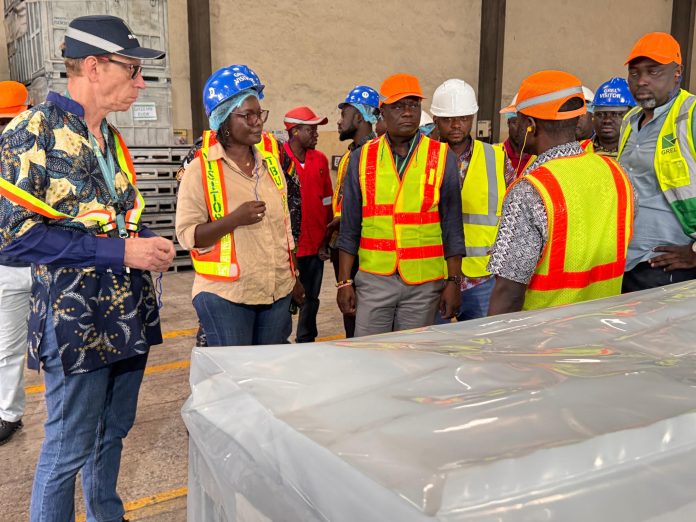The Western Regional Minister, Joseph Nelson, has urged the management of the Tree Crop Development Authority (TCDA) to take decisive action to curb the shortage of raw rubber caused by the export of the commodity.
According to the Minister, local processing plants are struggling to secure adequate supplies to keep their operations running, a situation he described as unacceptable.
“If local plants are struggling to get supplies while there is enough raw rubber in the system, then TCDA must sit up and address the issue head-on,” he said during a tour of Ghana Rubber Estates Limited (GREL) plants at Apemenim and Abura in the Western Region last Friday.
The Minister warned that the government’s vision of driving a 24-hour economy through agribusiness could be undermined if processors such as GREL were denied access to raw materials.
“It does not make sense to have sufficient raw rubber available and yet processors are struggling to operate. If this continues, the 24-hour economy will be defeated,” he emphasized.
He stressed that TCDA’s role must go beyond price setting. “Price setting alone is not enough. Market forces can distort the system if not actively managed. Both farmers and processors must be protected,” he said.
Mr. Nelson added that while protecting farmers was crucial, the sustainability of the entire value chain must not be overlooked. “Processing plants need raw materials to add value, and that value must reach the market. Otherwise, all efforts and policies, including the 24-hour economy, risk being defeated.”
The Minister further noted that exports of raw rubber should only be allowed when local processors had been adequately supplied. “It only makes sense to export the excess when all local companies have enough. Once local demand is satisfied, then the excess can be exported,” he explained.
He called for mechanisms to regulate supply and protect local industries from the adverse effects of unregulated exports.
In his remarks, the Managing Director of GREL, Thierry Cauchy, revealed that the company had the capacity to process up to 120,000 tonnes of rubber annually and to employ about 1,200 workers at its two factories. However, due to the shortage of raw rubber, the company was currently operating below capacity and employing fewer than 600 staff at its factories, leaving over 700 workers jobless.
Mr. Cauchy explained that since 2018, GREL has invested GH¢840 million in its operations, including two processing plants. With the Government of Ghana holding 26.75 per cent shares in the company, he said the challenges were not only threatening GREL’s operations, but also the Western Region’s economy.
He disclosed that despite regulations restricting raw rubber exports, there had been a surge in exports since July, further worsening the situation for local processors.
“The regulation on the export of raw rubber is not being respected. Local processors like GREL expected the rules to be enforced, but the opposite has happened. Our processing capacity has drastically reduced, employment has been affected, and the value chain is being disrupted,” he said.
GREL currently operates a 21,000-hectare concession across the Western, Central, and Eastern regions and, according to Mr. Cauchy, continues to contribute significantly to Ghana’s economy through investments, taxes, and employment.









